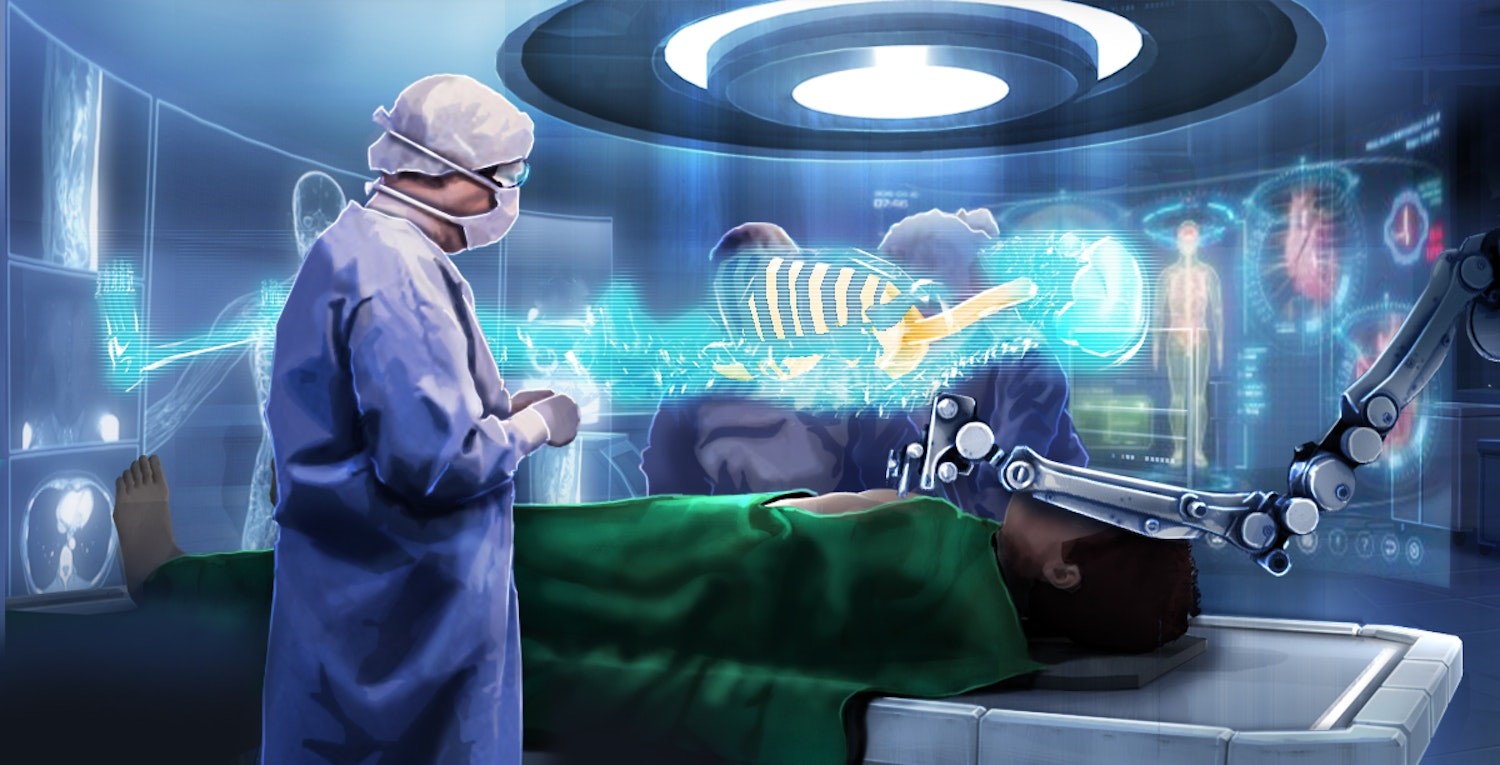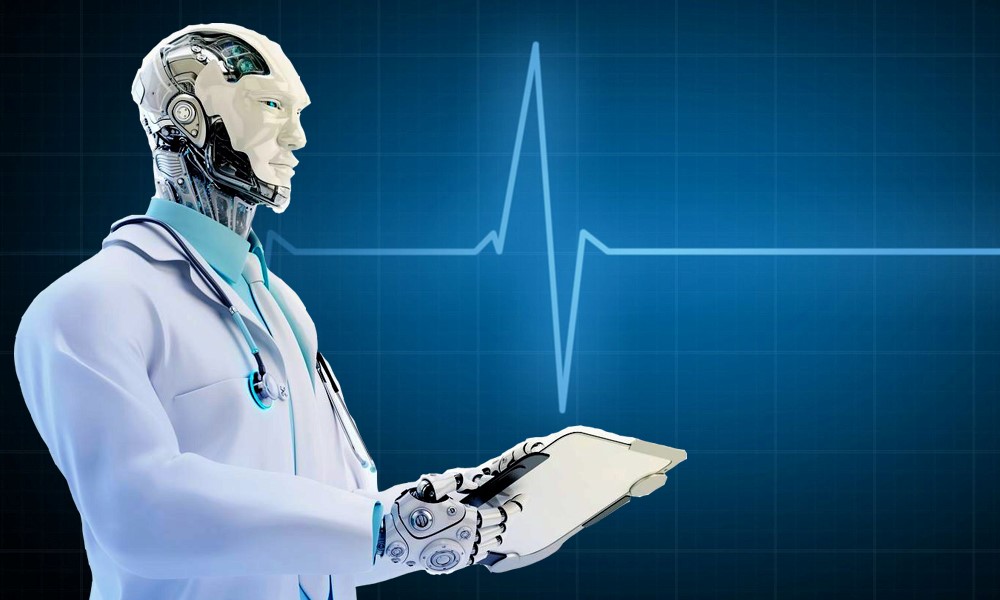How AI is Transforming the Healthcare Industry
Artificial Intelligence (AI) is fundamentally reshaping various sectors, and healthcare is no exception. From enhancing diagnostic accuracy to streamlining administrative tasks, AI is revolutionizing the way healthcare services are delivered. This transformation is driven by the convergence of big data, machine learning, and advanced algorithms, which collectively empower healthcare providers to offer more efficient, personalized, and effective care. In this article, we will explore the multifaceted impact of AI on the healthcare industry, focusing on its applications, benefits, and future prospects.
Enhanced Diagnostics
One of the most promising applications of AI in healthcare is in the realm of diagnostics. Traditional diagnostic methods often rely on the subjective judgment of medical professionals, which can sometimes lead to errors. AI algorithms, particularly those based on deep learning, have shown remarkable accuracy in interpreting medical images such as X-rays, MRIs, and CT scans. For instance, AI systems can detect anomalies and patterns in medical images that might be overlooked by the human eye, thereby improving diagnostic accuracy and speed.
Personalized Treatment Plans
AI’s ability to analyze vast amounts of data enables the creation of highly personalized treatment plans. By integrating data from various sources—such as electronic health records (EHRs), genetic information, and lifestyle factors—AI can offer tailored treatment recommendations. This level of personalization is particularly beneficial in managing chronic diseases like diabetes and cancer, where individualized treatment plans can significantly improve patient outcomes.
Predictive Analytics
Predictive analytics is another area where AI is making significant strides. By analyzing historical data and identifying trends, AI can predict potential health issues before they become critical. For example, AI algorithms can forecast the likelihood of a patient developing conditions such as heart disease or stroke, enabling early intervention and preventive care. This proactive approach not only improves patient outcomes but also reduces healthcare costs by minimizing the need for expensive treatments and hospitalizations.
Drug Discovery and Development
The traditional drug discovery process is time-consuming and costly, often taking years and billions of dollars to bring a new drug to market. AI is streamlining this process by analyzing complex biological data to identify potential drug candidates more quickly and accurately. Machine learning algorithms can simulate how different compounds interact with biological targets, significantly accelerating the initial phases of drug discovery. Additionally, AI can optimize clinical trials by identifying suitable candidates and predicting potential side effects, thereby reducing the time and cost involved in bringing new drugs to market.
Virtual Health Assistants
Virtual health assistants, powered by AI, are becoming increasingly popular for managing routine healthcare tasks. These AI-driven systems can schedule appointments, provide medication reminders, and offer preliminary medical advice based on symptoms described by the patient. Virtual health assistants not only enhance patient engagement but also free up healthcare professionals to focus on more complex tasks, thereby improving overall efficiency.

Robotic Surgery
Robotic surgery is another groundbreaking application of AI in healthcare. AI-powered robotic systems can perform intricate surgical procedures with a level of precision that surpasses human capabilities. These systems are particularly useful in minimally invasive surgeries, where they can reduce the risk of complications, shorten recovery times, and improve surgical outcomes. Surgeons can also use AI to plan surgeries more effectively by simulating different scenarios and outcomes.
Administrative Efficiency
AI is not only transforming clinical aspects of healthcare but also significantly improving administrative efficiency. Tasks such as billing, coding, and appointment scheduling can be automated using AI, reducing the administrative burden on healthcare providers. Natural language processing (NLP) algorithms can also streamline the documentation process by converting spoken or written notes into structured data, making it easier to update and retrieve patient records.
Ethical Considerations and Challenges
While the benefits of AI in healthcare are manifold, it is essential to address the ethical considerations and challenges associated with its use. Data privacy is a significant concern, as AI systems often require access to sensitive patient information. Ensuring that this data is securely stored and ethically used is paramount. Additionally, the lack of transparency in some AI algorithms, often referred to as the “black box” problem, can make it difficult to understand how certain decisions are made. This lack of transparency can be a barrier to gaining the trust of both healthcare providers and patients.
Future Prospects
The future of AI in healthcare looks promising, with ongoing advancements expected to bring even more transformative changes. The integration of AI with other emerging technologies, such as the Internet of Things (IoT) and blockchain, could further enhance healthcare delivery. For instance, IoT devices can continuously monitor patient health metrics and feed this data into AI systems for real-time analysis and intervention. Blockchain technology can provide a secure and transparent way to manage patient data, addressing some of the ethical concerns related to data privacy.
Moreover, AI-driven research is likely to uncover new insights into complex diseases, paving the way for innovative treatments and therapies. As AI algorithms become more sophisticated, they will be able to handle increasingly complex tasks, from predicting disease outbreaks to managing large-scale public health initiatives.
Conclusion
AI is undeniably transforming the healthcare industry, offering numerous benefits that range from improved diagnostics and personalized treatment plans to enhanced administrative efficiency and robotic surgery. While there are challenges to overcome, particularly in terms of data privacy and algorithm transparency, the potential for AI to revolutionize healthcare is immense. As technology continues to advance, the integration of AI into healthcare will likely become even more seamless, leading to a future where healthcare is more efficient, effective, and personalized than ever before.




